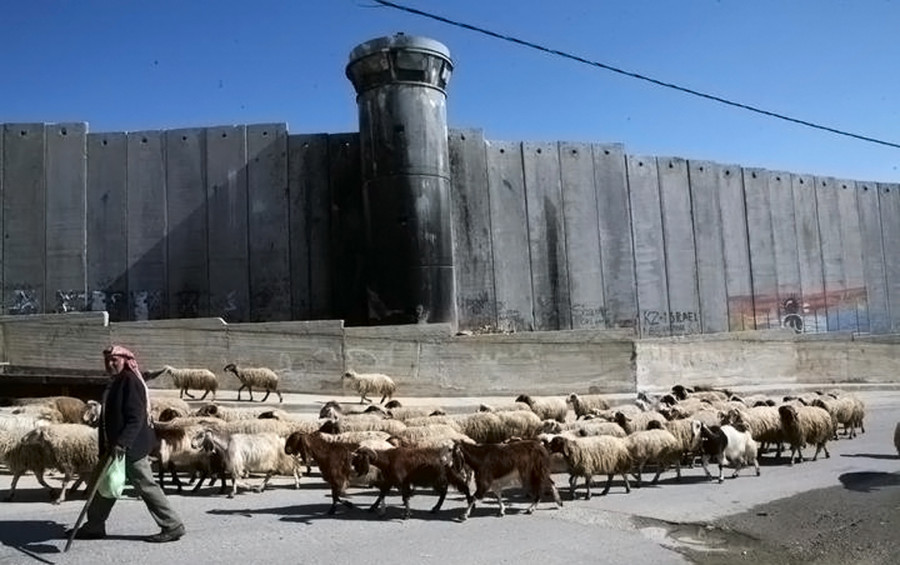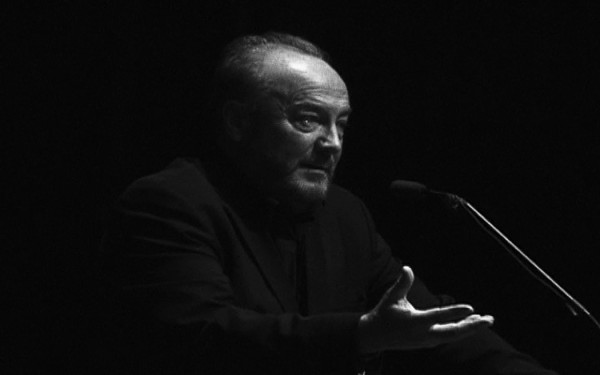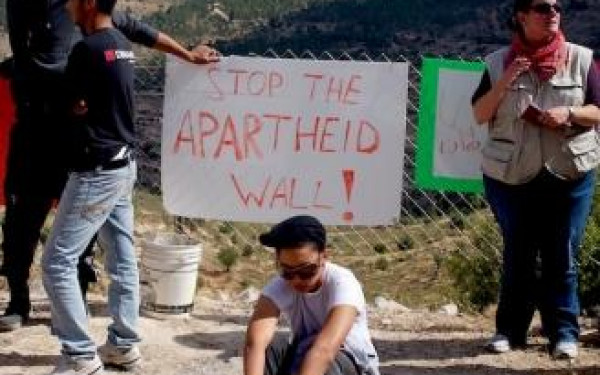Bleeding for Civil Disobedience
Anarchists Against the Wall Tour North America
There is an old saying which suggests that “good fences make good neighbours.”
But you may have a hard time hearing that in the West Bank.
“There are streets you can step on because you are Jewish and Palestinians have to take a different path[…] It’s very difficult to see this kind of separation,” said Noam Lekach of Israeli direct action group Anarchists Against the Wall.
AATW visited Concordia last Friday as part of the organization’s North American speaking and fundraising tour.
The group, which has participated in thousands of demonstrations and other acts of protest against what they call the “Israeli occupation” of Palestine, is in desperate need of money to address rising legal fees created by the constant arrests of its members and others in the movement.
“Activists both Israeli and Palestinian are being arrested all the time and legal expenses are very high,” said Lekach. “AATW has decided to pay all legal expenses of any Palestinian arrested. We are $15,000 in debt to our lawyers.”
Founded in 2003 after Palestinians invited several Israeli activists to join in the popular struggle against the construction of the wall that divides Palestinians from Israelis, AATW’s first action was to protest the fence at a point where it cut Palestinian farmers off from their land. During the action, Israeli soldiers fired live ammunition at the demonstrators, injuring some of the Israeli activists. According to Lekach, this had permanent consequences for the popular struggle.
“For the first time the Israeli press was dealing with resistance,” said Lekach. “Many asked why the soldiers did not have non-live ammunition. Until then, the IDF didn’t think about rubber bullets or tear gas because there were only Palestinians, because according to the Israeli state, my blood is worth more than Palestinian blood.”
It was at this time that the media also donned the loose collective of Israeli activists with their name: “Anarchists Against the Wall.”
The contested wall is the West Bank “security barrier,” which the state of Israel began building in the summer of 2003. In some places, it is a chain-linked fence crowned with barbed wire; in others, it is an eight meter high concrete barricade. The average width of the “exclusion area” around the wall—where no construction can take place—is 60 metres. In total, the wall stretches for 790 kilometers around and within the West Bank.
It takes up 10,512 acres of land, mostly on Palestinian territory.
The stated purpose of the barrier is to defend Israeli citizens from Palestinian terrorism. But its opponents see it as an attempt to illegally annex Palestinian lands under the guise of security. In 2004, the International Court of Justice stated that “the construction of the wall, and its associated régime, are contrary to international law.”
AATW, according to its mandate, is not only against the wall, but the occupation as a whole. They serve as front-line support in the Palestinians’ non-violent popular struggle in the West Bank by moving roadblocks off Palestinian roads, cutting down wire fences, blockading Israeli highways, rebuilding homes and escorting Palestinian farmers and shepherds around Jewish settlements.
Unlike other solidarity organizations, AATW operates solely with the permission of the Palestinians.
“We never initiate any action in the West Bank,” said Lekach. “We only come to places where we are invited because we know that those who most often pay the price [of actions] are the Palestinians themselves.”
The price, of course, can be very high. According to Lekach, activists are often seriously injured or even killed by the firing of high velocity tear gas canisters and rubber bullets.
“I joined AATW about a year ago and the reason I didn’t earlier is that I was afraid of my own army,” he said. “I was afraid to get shot.”
Lekach says that Israeli activists are considered traitors. Still, he says that more and more people are acting in solidarity with Palestinians.
“We believe only a joint struggle can bring change,” he said.
This article originally appeared in Volume 31, Issue 15, published November 23, 2010.







__600_375_90_s_c1.jpg)